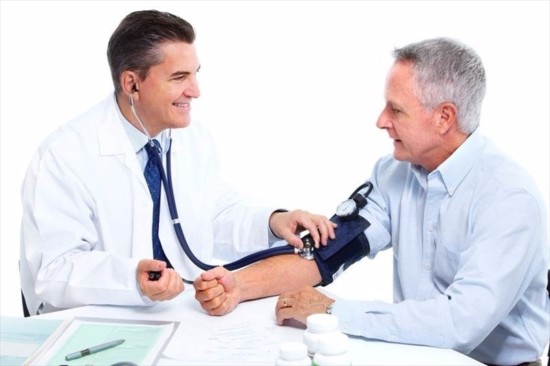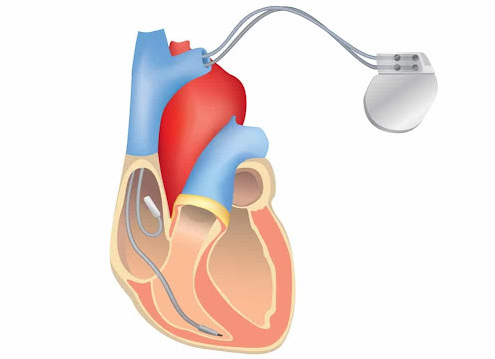Calls for Ukraine
Calls for Europe
Calls for USA

According to statistics from the WHO, the number of deaths from heart and vascular diseases exceeds deaths from oncology. One of the most common diseases of the cardiovascular system that can cause cardiac arrest is arrhythmia. In developed countries, cardiac surgeons install a pacemaker for patients to treat arrhythmias. The presence of a pacemaker significantly improves the quality of a person’s life, and in some cases, the device can save a life.
A pacemaker is used when there is a violation of the self-regulation of the heart rhythm. In this case, the heart beats too slowly (bradycardia) or too fast (tachycardia).
The slow heartbeat may be due to sick sinus syndrome, bundle-branch block, or atrioventricular block. With these pathologies, the conduction of electrical impulses in the heart muscle does not pass properly. There is also a risk that the heart will stop working and stop.
Irregular heartbeats can be caused by diseases in other organs (thyroid dysfunction) or medications for heart failure and high blood pressure.
World statistics of pacemaker installation:
The main symptoms of an abnormal heart rhythm are:
The appearance of such symptoms in the absence of physical activity indicates the need for urgent surgery.
If you have symptoms of heart rhythm disturbances at rest or during physical activity, you should consult a cardiologist. Timely diagnosis will help you choose the right treatment and prevent possible complications.

To make the correct diagnosis and choose an effective treatment, cardiologists and cardiac surgeons prescribe the following examinations to patients:
To treat irregular heart rhythms, doctors use the following methods:

In the most common implantation method, the doctor makes a small «pit» under the skin after anesthesia and disinfection of the surgical area under the collarbone. After the device has been inserted into that pit, the doctor gently advances the thin wires (electrodes) through a vein just below the collarbone.
During the procedures, he conducts X-ray control, direct contact with the tissue of the heart muscle. To prevent the electrodes from slipping, the cardiac surgeon fixes them in the muscle tissue. Then the electrodes are firmly connected to the apparatus, which is fixed to the muscle tissue with a suture.
Once the device is installed, the doctor checks it to make sure it is working correctly. Then the skin over the pacemaker is sutured and a bandage is applied.
In rare cases, a device is placed in the abdomen and electrodes are attached to the outside of the heart.
The cost of an operation in a particular country depends on the following factors:
Examples of the cost of implantation of a pacemaker in clinics around the world:
Most foreign clinics include in the cost of the operation: transfer, hospital stay, preoperative examinations.
When should a patient have a pacemaker inserted?
Your doctor will recommend a pacemaker for certain cardiac arrhythmias that slow or temporarily stop your heart rate. Such abnormalities can be discovered by chance during an ECG examination or are manifested by symptoms such as dizziness and short-term loss of consciousness.
What is a pacemaker?
A pacemaker is a device that consists of electrodes, a battery, and a pacemaker system. It is designed to create regular heart rate impulses. Modern pacemakers weigh only 7 grams and are about the size of a matchbox.
What method of anesthesia is used to implant a pacemaker?
A pacemaker is usually implanted under the collarbone under local anesthesia. In addition, sedative and relaxing medications are usually prescribed by the anesthesiologist.
What should the patient consider before installing a pacemaker?
If you regularly take medications for other diseases, you should inform your surgeon in advance. Some medications (blood thinners) should be stopped several days before the surgery.
What should the patient be aware of after installing a pacemaker?
Even after outpatient pacemaker installation, the patient must remain under medical supervision. Due to the sedative medication, it may take some time before consciousness returns to the patient. Therefore, it is forbidden to drive a car on the day of the operation and to use public transport without the supervision of loved ones.
How much does a pacemaker implantation cost in Turkey?
The average cost of a pacemaker implantation in Turkey is $7 500.
How is rehabilitation done after installing a pacemaker?
Doctors prescribe supportive drug therapy and physiotherapy exercises to the patient after the operation to restore the body. Dosed physical activity stimulates the immune system and improves endurance.
If necessary, the doctor prescribes a course of psychotherapy. During the course, the patient is helped to become aware of the presence of a foreign object in the body and to accept a number of restrictions that are associated with this.
Please rate the work of MedTour
